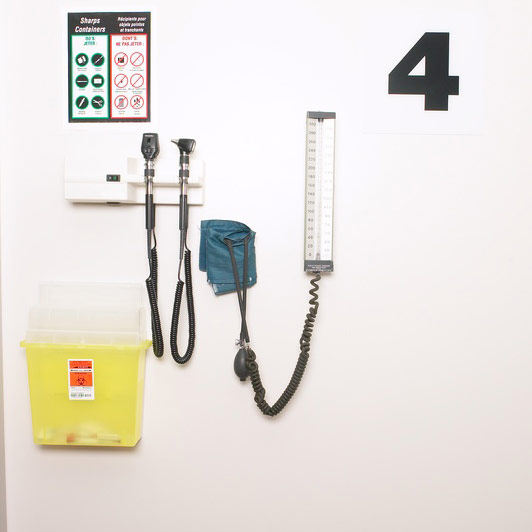FRIDAY, Feb. 19, 2016 (HealthDay News) — Young adults who regularly binge drink have elevated blood pressure compared to those who drink occasionally, and could wind up with high blood pressure, researchers warn in a new study.
Among binge-drinking young adults, investigators found that systolic blood pressure (the top number in a blood pressure reading) is 2.6 to 4 points higher compared to those who don’t binge. This is enough to put some in the early stages of high blood pressure, said senior researcher Jennifer O’Loughlin.
“Our findings show that more than one in four young adults who binge drink meet the criterion for prehypertension,” she said.
“This is worrisome because this condition can progress to hypertension, which in turn can cause heart disease and premature death,” explained O’Loughlin. She is a professor of social and preventive medicine at the University of Montreal.
Binge drinking is defined as five or more alcoholic beverages consumed on a single occasion. Previous studies in Canada and the United States have shown that about four in 10 young adults aged 18 to 24 are frequent binge drinkers, the researchers said in background notes.
Prior research also has linked alcohol to high blood pressure, and O’Loughlin and her colleagues wanted to see if that link affected even young adults.
Typical blood pressure among young adults is around 104 systolic, which represents the pressure in arteries when the heart beats, O’Loughlin said.
Prehypertension — the warning stage of high blood pressure — is 120 to 139 systolic. People with 140 systolic or more have full-fledged high blood pressure.
The researchers drew their data from an ongoing Canadian study on nicotine dependence, which also asked questions about drinking habits at age 20 and 24, and measured blood pressure at age 24.
The research team compared 756 participants, looking at whether binge drinking at age 20 and 24 affected their blood pressure by age 24.
Compared to non-binge drinkers, systolic blood pressure at age 24 was 2.6 points higher among those who continued to binge drink on a monthly basis, and 4 points higher among those who had a binge-drinking episode every week, the study found.
The study also revealed that 85 percent of young adults who drink heavily at age 20 maintain this behavior at age 24. “That was shocking,” O’Loughlin said. “I was surprised by the number of kids who seem to be consuming a lot of alcohol.”
The researchers can’t prove that binge drinking caused blood pressure to rise, but they tried to control for other behaviors that can lead to elevated blood pressure — poor diet or lack of exercise, for example — by taking into account the participants’ body mass index (BMI), O’Loughlin said. BMI is a measure of body fat based on height and weight.
The long-range health outlook for these young adults could be grim as those who were binge drinking gained about 1 point of systolic blood pressure every year, O’Loughlin said.
Over time, it adds up. “If you happened to be at 130 at age 20 and you keep bingeing for a decade, you’re going to develop high blood pressure,” she pointed out.
How blood pressure will respond if someone quits binge drinking isn’t clear. No one’s done research that shows a person’s blood pressure will return to “normal” levels if they cut back or quit alcohol, said Dr. Stephen Daniels, chair of pediatrics at the University of Colorado School of Medicine.
“This is an area that needs more research,” Daniels said. “Are you creating some irreparable harm by binge drinking in your late teens and early 20s? Maybe not in the moment, but the harm that comes from elevated blood pressure is long-term.”
Additionally, it’s unlikely that many of these young adults will stop binge drinking any time soon, Daniels added.
“It’s pretty clear that binge drinking is associated with ongoing issues with alcohol use,” he said. “I think one shouldn’t assume that adolescents and young adults who do binge drinking can stop. When a doctor is seeing a young adult with higher blood pressure, I think asking about drinking when taking their medical history is important.”
The study is published in the Feb. 19 issue of the Journal of Adolescent Health.
More information
For more on binge drinking, visit the U.S. Centers for Disease Control and Prevention.
Copyright © 2026 HealthDay. All rights reserved.

